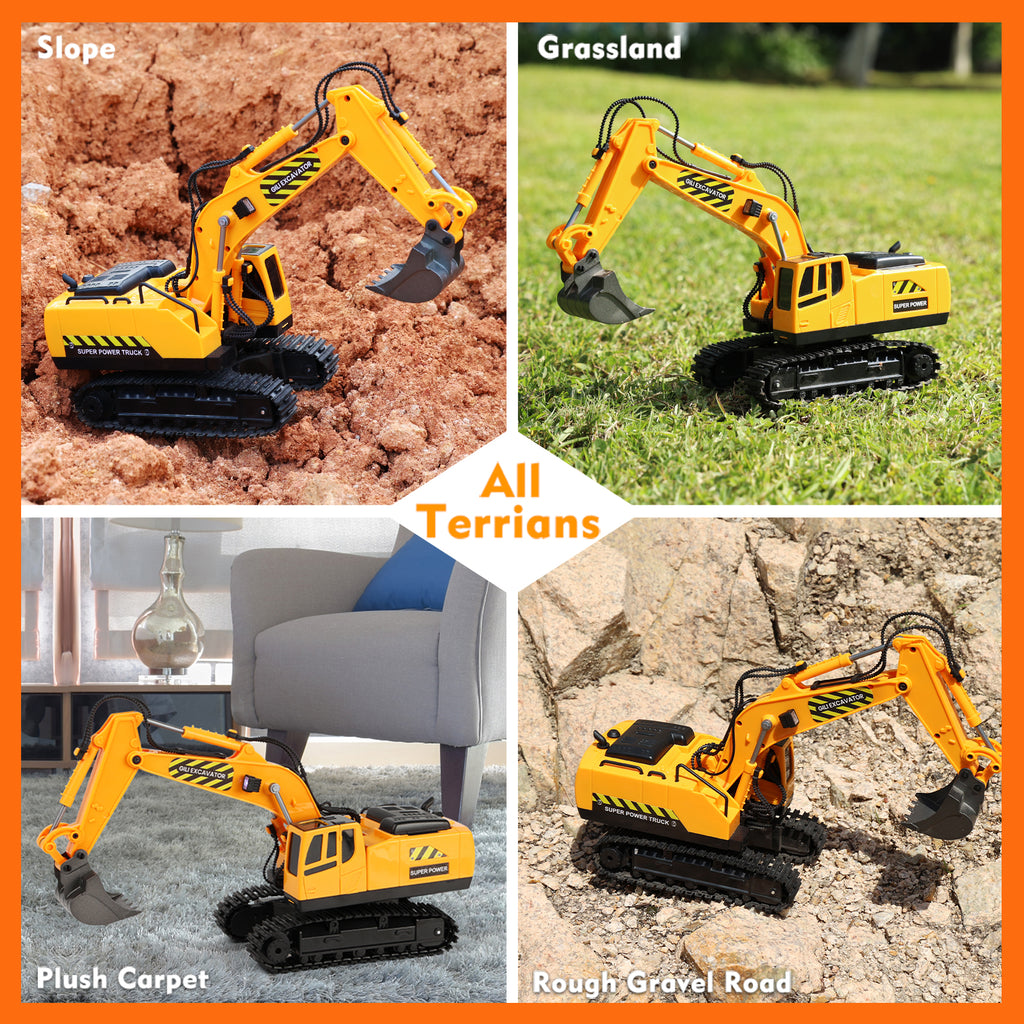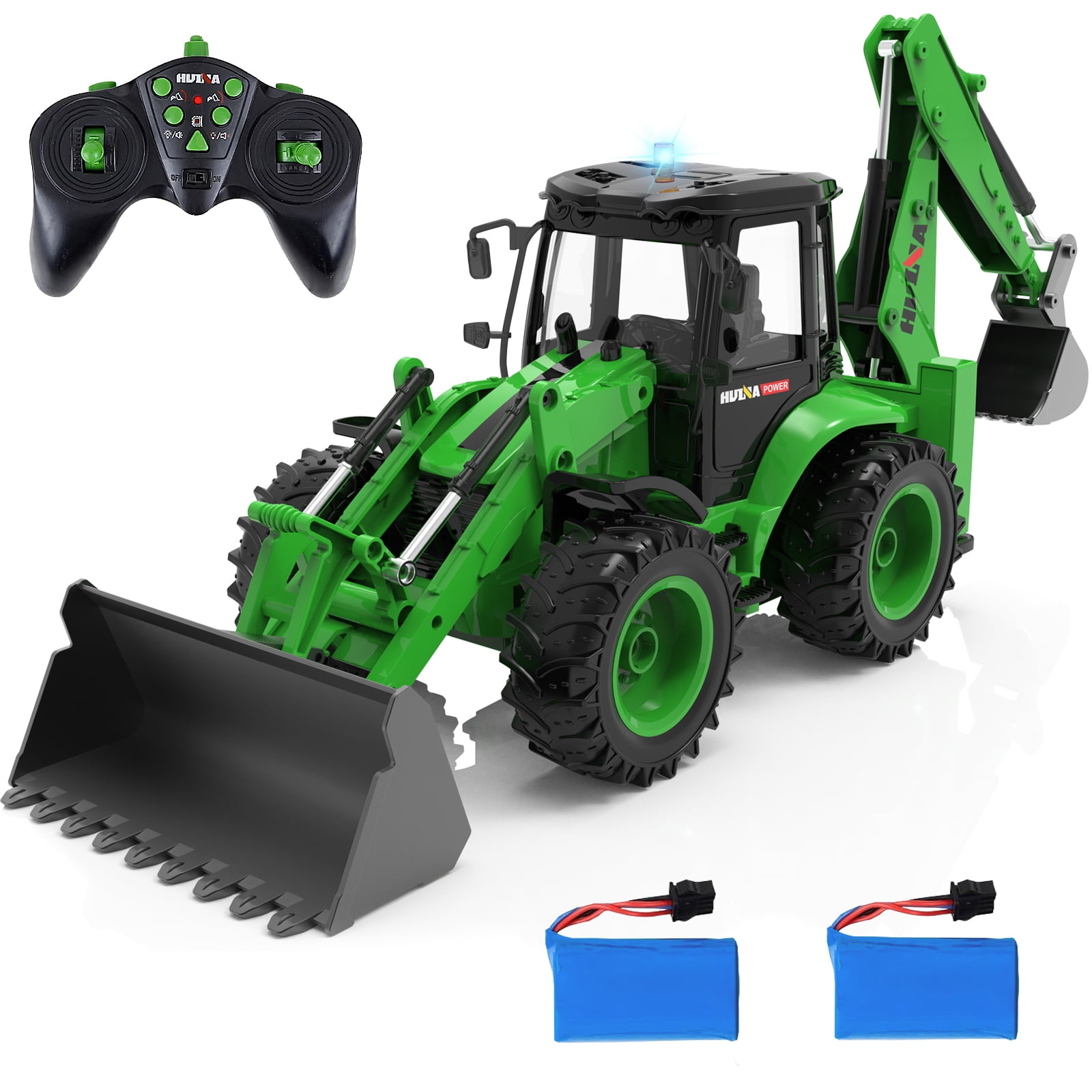Discover the Significance of Excavator in Modern Building And Construction Projects
Excavators are necessary devices in modern building and construction tasks. Their flexibility allows them to do a wide variety of tasks, from digging and grading to demolition and website preparation. Advanced functions, such as hydraulic add-ons and GPS, improve their capacities and effectiveness on job websites. As the industry develops, the value of excavators grows even much more. Recognizing their function can expose insights right into the future of building and construction methods. What lies ahead for these machines?
The Versatility of Excavators in Various Projects
Although excavators are typically related to large building and construction projects, their versatility allows them to be utilized in a variety of applications, from property landscaping to utility maintenance. In city setups, excavators can browse limited areas to dig structures for homes or mount drainage systems. Their capacity to execute fragile tasks makes them ideal for landscaping jobs, where they can excavate for fish ponds or plant trees. Additionally, excavators play a vital role in utility maintenance, successfully excavating trenches for pipelines or wires without interrupting surrounding areas. In agricultural applications, they help in land clearing up and dirt prep work. Moreover, their versatility allows them to be geared up with numerous add-ons, improving their performance across various jobs. This multifaceted nature of excavators not just streamlines numerous building and construction processes yet likewise demonstrates their important role in modern infrastructure development and upkeep.
Trick Attributes and Kinds Of Excavators
The discussion on crucial attributes and types of excavators highlights the necessary attributes that make these makers very useful in building and construction. Different excavator types, each made for details jobs, show their versatility and effectiveness throughout different applications. rc excavator. Understanding these classifications and functions is essential for optimizing their usage in modern building tasks
Excavator Enters Introduction
Excavators play a pivotal function in modern-day building and construction, offering convenience and effectiveness across various tasks. These heavy equipment systems can be found in a number of types, each tailored for particular applications. One of the most usual types consist of spider excavators, understood for their security on irregular surface, and wheeled excavators, which provide greater movement on smooth surfaces. Small excavators are preferred for small jobs and limited areas, while long-reach excavators are developed for deep digging. Furthermore, there are specific excavators, such as hydraulic excavators, which enhance power and accuracy. Each type includes distinct abilities, making them crucial for jobs varying from excavating and grading to demolition and product handling. Understanding these variants enables construction experts to choose the best excavator for their job needs.
Trick Features Explained
Comprehending the essential attributes of excavators improves their effective application in building projects. Excavators are characterized by their effective hydraulic systems, which offer the required force for digging, training, and relocating products. Their expressed arms permit a broad variety of activity, facilitating specific procedures in confined rooms. Furthermore, the selection of attachments, such as buckets, grapples, and augers, expands their adaptability to satisfy different task demands. The dimension and weight of excavators also contribute to their stability and maneuverability on numerous surfaces. In addition, improvements in technology have actually brought about the assimilation of general practitioner and automation, enhancing accuracy and effectiveness in excavation jobs. These attributes jointly place excavators as essential devices in modern construction.
Applications in Building
Changing building websites, excavators play a pivotal role throughout different applications, varying from residential structure jobs to large framework growths. These flexible machines are furnished for tasks such as digging structures, trenching for utilities, and site grading. Various kinds of excavators, including crawler, wheeled, and mini excavators, offer details advantages customized to the project demands. Crawler excavators master harsh surfaces, while wheeled excavators use flexibility on smooth surfaces. Tiny excavators are optimal for constrained areas, making them prominent in city setups. The performance and power of excavators substantially speed up building procedures, making certain timely task completion. Their versatility even more boosts their value, enabling building and construction groups to take on a varied variety of challenges successfully.
Enhancing Effectiveness and Productivity on Work Sites
Making best use of efficiency and performance on work websites is an essential purpose in contemporary construction. Excavators play a crucial function in accomplishing this goal by improving different jobs. Their capability to perform numerous functions-- such as digging, grading, and lifting-- lowers the need for extra devices, therefore conserving time and resources.Moreover, excavators improve process by permitting faster completion of jobs. With advanced functions like hydraulic attachments and GPS technology, they can perform precise procedures that minimize mistakes and remodel. This precision not just boosts the top quality of job yet additionally Click Here enhances material use, adding to set you back savings.The adaptability of excavators permits them to adapt to various site problems, making certain that jobs progress smoothly no matter challenges. By incorporating excavators into building and construction processes, groups can greatly enhance their overall productivity, bring about timely job conclusion and boosted success.
Safety And Security Advantages of Utilizing Excavators
Excavators significantly improve security on building sites via enhanced operator exposure and decreased manual labor dangers. By providing drivers with a clear view of their environments, excavators assist to stop crashes and injuries. Furthermore, the equipment minimizes the requirement for employees to take part in harmful hands-on tasks, even more advertising a safer workplace.
Enhanced Driver Presence
Although building sites can be chaotic and filled with possible dangers, enhanced driver visibility plays an important function in ensuring security when utilizing excavators. Modern excavators are made with large, unblocked windows and strategically put mirrors, allowing drivers to preserve a clear sight of their surroundings (rc excavator). This improved visibility is critical for detecting pedestrians, various other machinery, and different obstacles, significantly minimizing the risk of accidents. Furthermore, many excavators include advanced innovation, such as cameras and sensing units, to supply drivers with extra point of views, even more enhancing understanding. The ability to see even more plainly not only aids in efficient operation yet also promotes a much safer work environment, making it easier for drivers to browse complex construction sites without compromising safety and security standards
Decreased Guidebook Labor Dangers
When hands-on labor is reduced via using excavators, many safety and security advantages arise, considerably boosting the wellness of building workers. Excavators reduce the physical strain connected with hefty lifting and repeated tasks, efficiently lowering the risk of bone and joint injuries. By automating processes such as excavating, grading, and moving materials, they enable workers to maintain a much safer distance from possible hazards. Furthermore, excavators are equipped with innovative safety features, such as rollover security systems and enhanced driver functional designs, which additionally secure personnel on site. The result is a significant decrease in work environment accidents and injuries, resulting in increased efficiency and spirits among building and construction teams. Eventually, the fostering of excavators contributes to a safer and much more reliable construction environment.
Excavators in Earthmoving and Site Preparation
In modern construction, a considerable section of earthmoving you could check here and website preparation tasks depends on the performance and versatility of excavators. These makers are made to deal with various dirt kinds and terrain, making them crucial for grading, digging, and trenching activities. Their hydraulic arms can be geared up with various accessories, such as augers and pails, allowing operators to customize their technique based on details task requirements.Excavators stand out at relocating huge quantities of planet swiftly and efficiently, which speeds up the total building timeline. They can navigate tight areas and challenging sites where standard tools may battle, improving efficiency. Additionally, the precision of excavators assurances that site preparation abides by rigorous requirements, reducing the threat of errors that could result in expensive rework.
The Duty of Excavators in Demolition Tasks
Excavators play an important duty in demolition tasks, as they possess the power and agility required to take apart structures efficiently. Outfitted with numerous attachments such as hydraulic breakers, shears, and grapples, these equipments can adjust to various demolition needs, whether for tiny structures or large industrial websites. Their versatility enables operators to take on intricate projects while keeping security and precision.In addition to their demolition capabilities, excavators promote debris elimination, making certain that job sites stay secure and organized. By breaking down structures into manageable items, they enable structured clearing and recycling of products, straightening with contemporary sustainability efforts.Moreover, excavators can access tight areas and navigate uneven terrain, making them vital in urban demolition projects. In general, their durable style and multifunctionality make excavators a crucial possession in the demolition phase of building and construction, adding considerably to project timelines and efficiency.


Future Patterns in Excavator Innovation and Usage
As the building market develops, advancements in excavator innovation are poised to transform their use and effectiveness significantly. One considerable trend is the combination of automation and man-made intelligence, allowing excavators to run with minimal human intervention. This shift will certainly improve accuracy in tasks such as grading and trenching, lowering human error and enhancing productivity.Additionally, the rise of electrical and hybrid excavators is shaping an extra sustainable building environment, reducing carbon emissions and gas costs. Improved telematics systems are also emerging, allowing real-time tracking of device efficiency and maintenance demands, which can cause better functional effectiveness and longer read more devices lifespan.Moreover, innovations in attachment modern technology are increasing the convenience of excavators, permitting them to perform a wider series of jobs. The mix of these trends shows a future where excavators are smarter, greener, and extra versatile, ultimately reshaping construction job characteristics.
Frequently Asked Concerns
Just How Do Excavators Contrast to Various Other Building Equipment?
Excavators, identified by their versatility and power, master digging and earthmoving compared to other machinery. Their ability to do numerous jobs, consisting of lifting and demolition, makes them crucial in building tasks, boosting total efficiency.

What Is the Ordinary Life-span of an Excavator?
The ordinary lifespan of an excavator commonly varies from 7,000 to 10,000 operating hours, depending upon maintenance, usage conditions, and design. Correct care can prolong this life expectancy, making sure peak efficiency throughout its operational years.
How Are Excavators Preserved for Ideal Performance?
Excavators require routine upkeep for peak performance, consisting of routine evaluations, fluid checks, filter replacements, and timely repairs. Applying a precautionary upkeep routine assists prolong their lifespan and warranties reliable operation in various construction settings.
What Are the Expenses Connected With Getting an excavator vs. leasing?
The costs connected with leasing versus purchasing an excavator vary significantly. Renting deals lower upfront expenses but can collect with time, while buying calls for a substantial first investment, but supplies long-lasting financial savings and possession ownership advantages.
What Training Is Needed to Run an Excavator?
Operating an excavator needs specialized training, commonly consisting of safety and security methods, maker operation techniques, and ecological awareness. Accreditation programs often mandate sensible experience, allowing drivers to deal with different jobs successfully while making sure compliance with industry guidelines. The most common kinds consist of crawler excavators, understood for their stability on irregular terrain, and rolled excavators, which give higher movement on smooth surface areas. Miniature excavators are preferred for limited rooms and small jobs, while long-reach excavators are developed for deep digging. Furthermore, there are customized excavators, such as hydraulic excavators, which boost power and precision. Various kinds of excavators, including crawler, rolled, and mini excavators, supply details advantages tailored to the project demands. Crawler excavators stand out in harsh surfaces, while wheeled excavators provide flexibility on smooth surface areas.